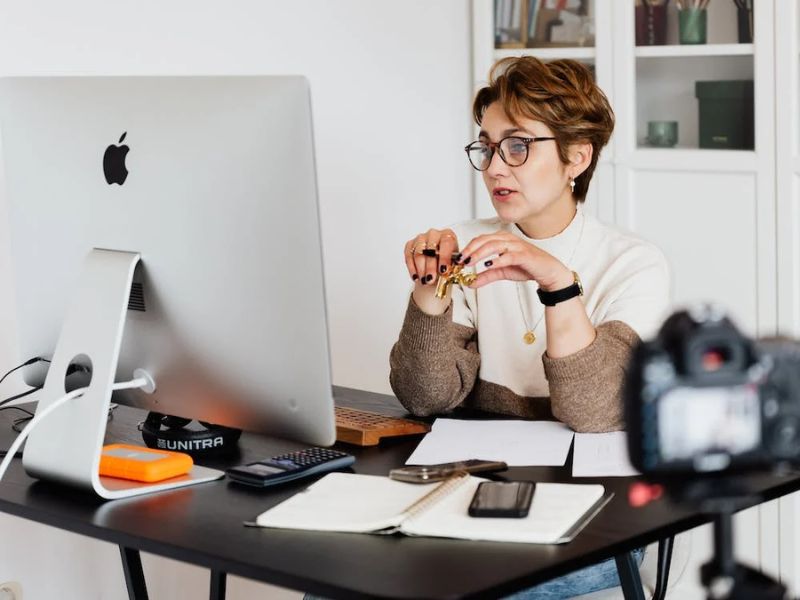Psychologist Olivia Brouillette, who practices in Den Haag, the Netherlands, anticipates screen addiction will soon be recognized as an addiction.
She told Insider, “I do see this as becoming more of a legitimate addiction in the coming years and could see it being added to the DSM [Diagnostic and Statistical Manual of Mental Disorders] and ICD [International Classification of Diseases]. I see screen addiction in people of all ages, professionally and personally.”

Image Credit: Pexels/Karolina Grabowska
Additionally, Brouillette said there are mental signs that can be caused by excessive screen time, sleep disturbances, eye strain, headaches such as foggy brain confusion, lack of focus and mental clarity, and difficulties interacting with others.
People who worry about screen addiction can reduce screen time by following Brouillette’s tips.
Specification Is Key
A specific, quantifiable goal can help screen users and hold them accountable. Brouillette suggests getting more detailed than simply cutting apps. Brouillette advised people to analyze their screen time and decide what limits they want to set for themselves. If you spend 4 hours on social media, try to limit yourself to 2 hours; use the time-limit function on your phone and give the code to someone you trust.

Image Credit: Shutterstock/Kateryna Onyshchuk
Identify Realistic Goals
Brouillette’s biggest tip is to set realistic goals. She said, “It is a marathon, not a race. Set small, realistic goals and build them up over time. Don’t make your goals too big or you’ll give up. “
Despite Difficulties, Persist
Brouillette warned, “Honestly, expect boredom when you cut back on screen time. It’s natural to get bored when you stop using your source of entertainment so much.” People can feel frustrated by this, but planning for challenges and understanding them can reduce the frustration.